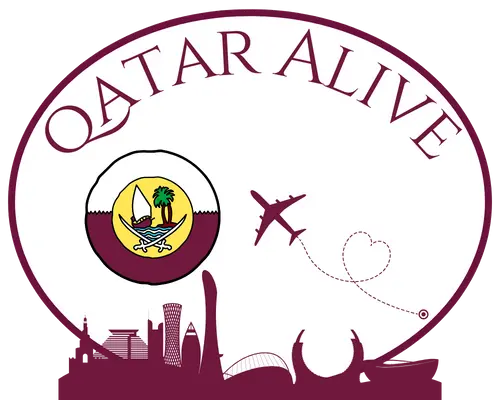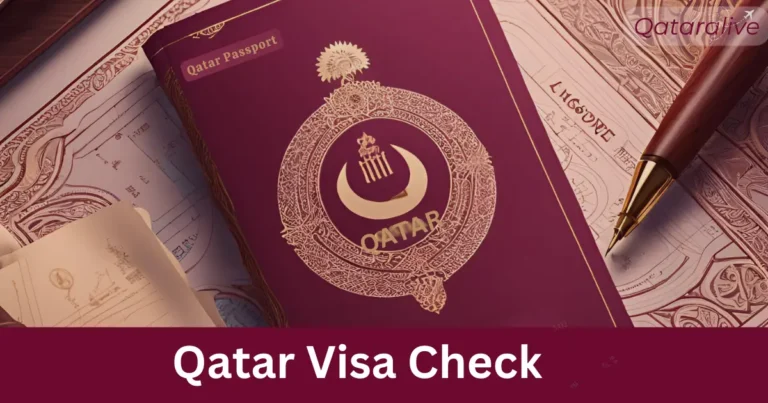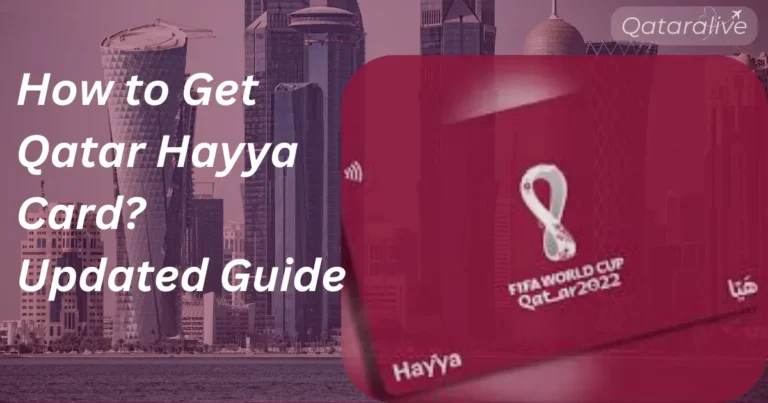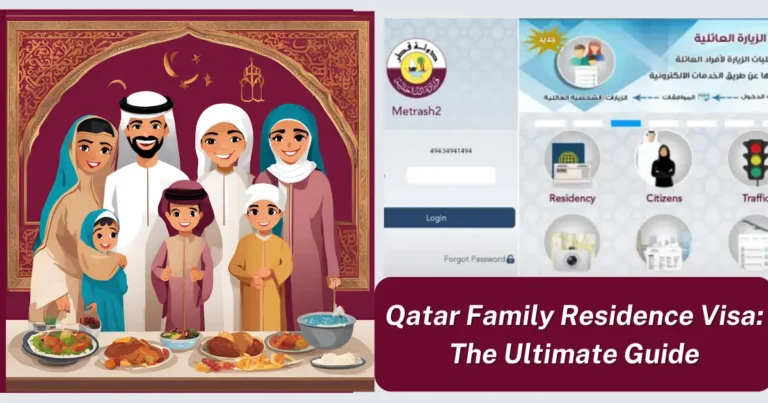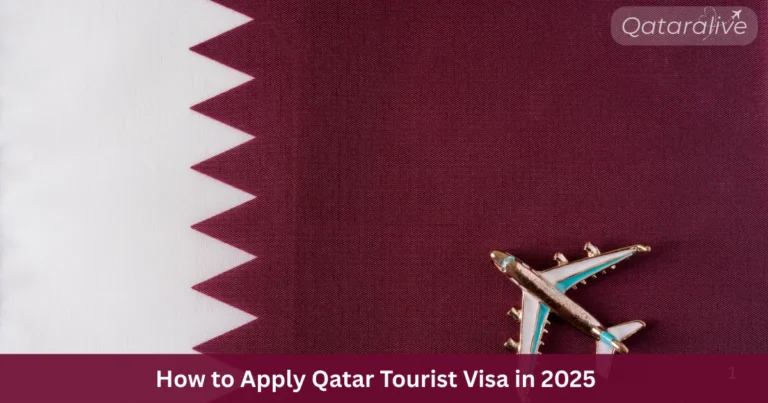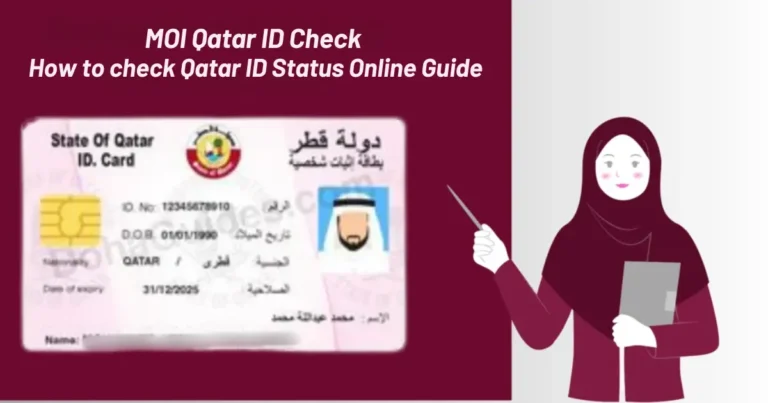Qatar Freelance Visa: Requirements, Costs & Legal Guide
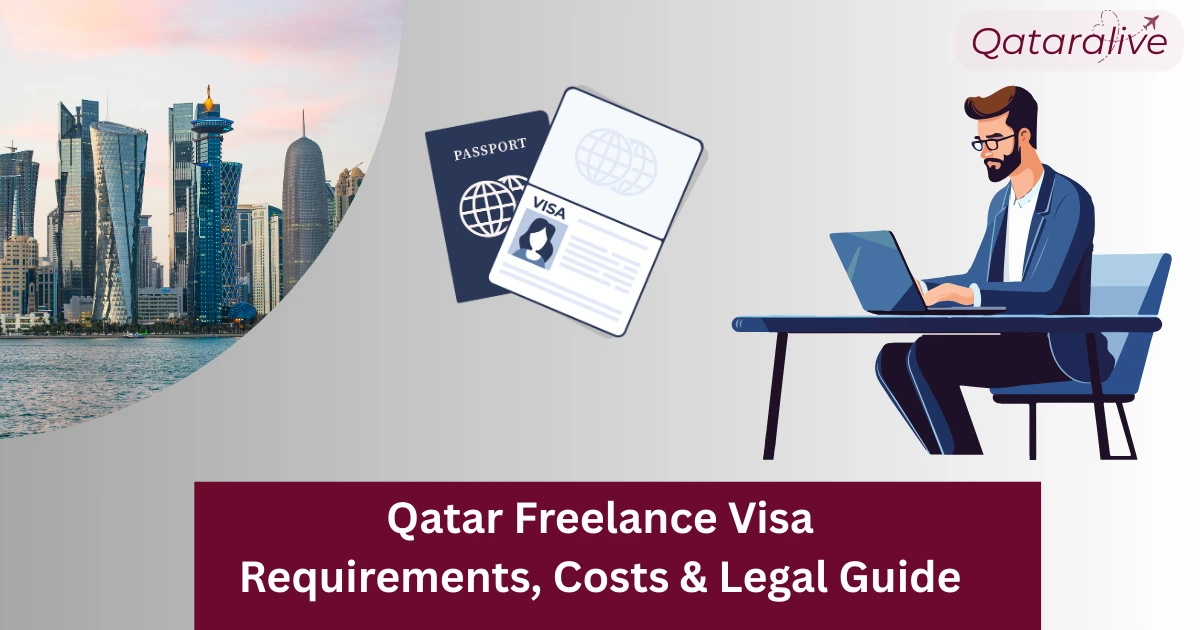
To work independently in Qatar under a freelance visa, a freelancer needs a sponsor. This sponsor takes on the responsibility of making sure the freelancer gets paid and handles their visa and legal standing. The sponsor should be a Qatari citizen or a registered business in Qatar.
If you are looking to get a Qatar Freelance Visa, here is complete information from its legal work to other issues.
What is a Freelance Visa?
A freelance visa allows freelancers to work independently in any country. It enables freelancers to work freely without any pressure, take on projects of their choice, and be their own boss. They do not have to work under someone, so that’s why it is called a Freelance Visa.
What is a Qatar Freelance Visa?
A Qatar Freelance Visa is a kind of work visa that allows a visa holder or a freelancer to work on his own. However, this visa is obtained through an agreement that is an unofficial sponsorship between the sponsor and the visa holder. The sponsor does not have to pay the freelancer any kind of salary. This visa is also known as a Free visa or Azad Visa.
Mustaqel Visa
Now, applications like Mustaqel Visa Applications are open for Freelancers to offer a Five-year residency Plan. Cards like Haya Cards are now digital entry permits.
Is a Qatar Freelance Visa Legal?
This visa has not been officially introduced in Qatar and is not considered legal. According to Qatar labour law, anyone who works in Qatar from another country is under an employer’s sponsorship.
This point differs in the Freelance Visa as it allows freelancers to work independently and even buy a Qatari sponsorship or a company by paying huge amounts of money.
What is the eligibility for a Qatar Freelance Visa?
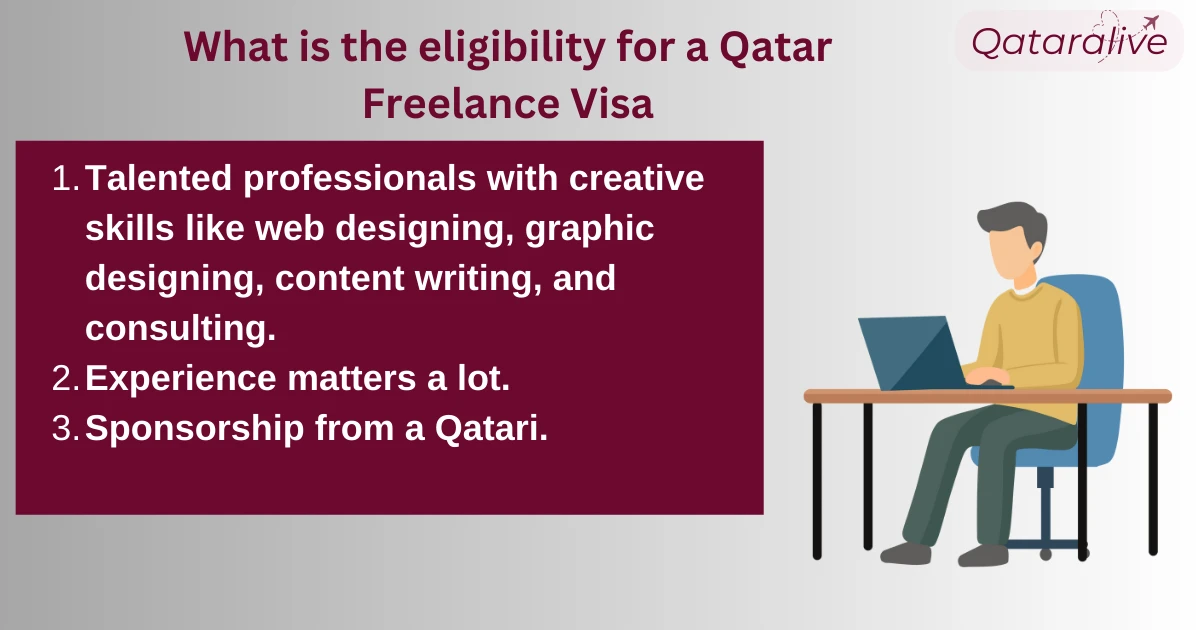
You can also visit Qatar on a Transit Visa and Tourist Visa which is legal in all ways.
How to Get a Qatar Freelance Permit
While Qatar does not officially offer a separate freelance permit, many independent professionals arrange a standard work visa through a local sponsor. Here are the steps to get a Qatar Freelance Visa:
1. Line Up a Sponsor
You will need a Qatar-based individual or a registered company to act as your official sponsor. Although you will not truly work for them, they hold your visa and residency paperwork.
2. Gather Your Paperwork
Prepare your documents. Each must be attested if issued abroad:
3. Cost of Qatar Freelance Visa
Most sponsors charge an upfront “service” fee of QAR 5,000–10,000 plus a small monthly retainer (around QAR 250–500). Do not hesitate to negotiate and shop around until you find a fair deal.
Make sure to make an authentic deal. Every year, many people from South Asian countries like Bangladesh, India, Sri Lanka, and Pakistan fall victim to this fraud.
4. Sign the Sponsorship Contract
You will sign documents stating the sponsor will employ you—but in reality, it’s just a formality to satisfy the Ministry of Interior. Treat these papers carefully, as they govern your legal status. For these reasons, this visa is considered illegal in Qatar.
5. Pay the Visa Fee
Once your sponsor submits your application, you will have to pay the official visa fees. These payments are typically non‑refundable, so double‑check the breakdown before you hand over any cash.
6. Complete Health Checks
You will undergo a medical exam in Qatar (blood tests, X‑rays, etc.) to confirm you are fit. Keep copies of your results. They are needed for your Qatar ID card.
7. Provide Biometrics
Fingerprints and a photo will be taken at an authorized center. This step finalizes your identity verification for Visa.
8. Collect Your Visa and QID
When everything is approved, your sponsor will receive your residence permit (QID) and visa stamped in your passport.
9. Visa Renewal
Residency visas usually run for one to three years. To renew, simply repeat the health checks, pay the renewal fees to your sponsor, and update your biometric data if required.
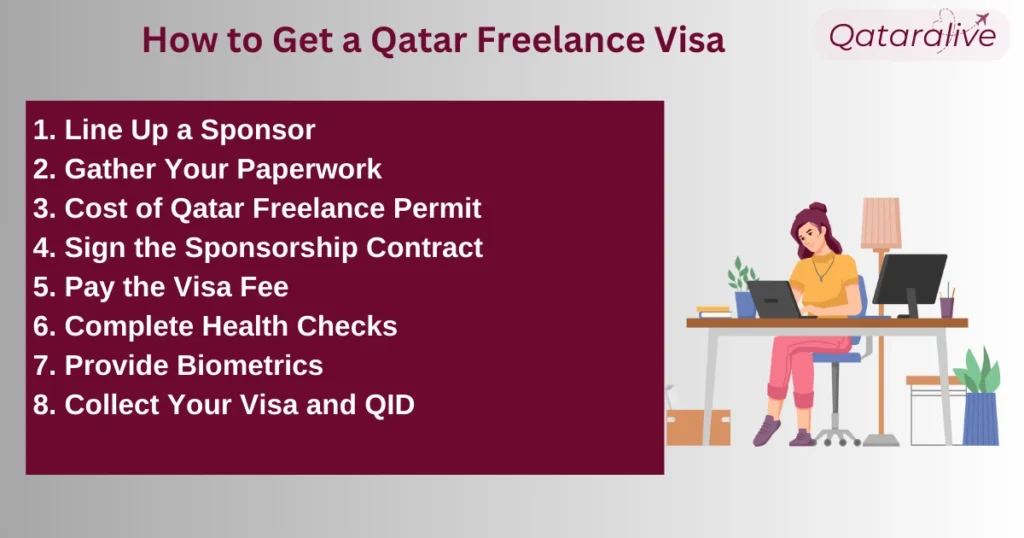
Tips to get a Qatar Freelance Visa:
You can check your Qatar visa on the MOI portal and QVC portal.
What are the benefits of a Qatar Freelance Visa?
What is Qatar Labor Law 15
Qatar Labor Law (Law no. 4 of 2009) states:
No natural or juridical person may allow expatriates recruited as employees to work for any other entities, nor may they employ staff who are not thus sponsored. The competent authority may, exceptionally, permit a sponsor to second its expatriate employees to another employer for a period not exceeding six months, renewable once for a similar duration.
Problems for Qatar Freelance Visa Holders
Legal ways to work as a Freelancer in Qatar
If you want to stay fully compliant, consider these two legitimate pathways:
What is the punishment for working illegally?
If anyone got caught working illegally in Qatar has to face serious punishment. The freelancer may be deported. Besides the freelancer, his sponsor and employee also have to pay huge fines.
Conclusion
Getting a Qatar Freelance Visa is difficult. Make sure you enter any country with legal ways so you can work worry-free. Never use illegal ways to work in Qatar as it will lead to serious problems.
You can enter Qatar with legal options like other types of Visas. Always make sure to follow the rules and laws.
